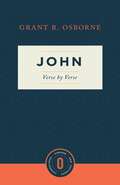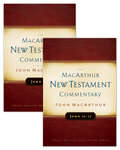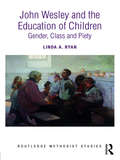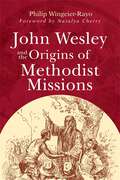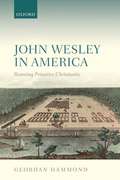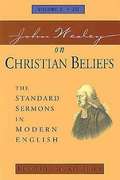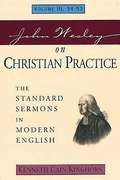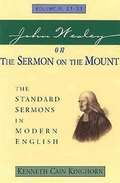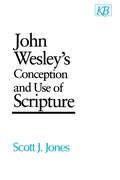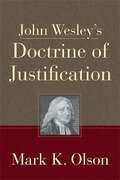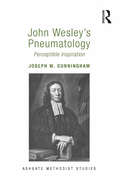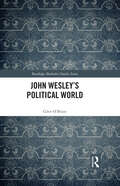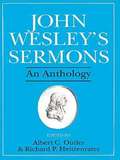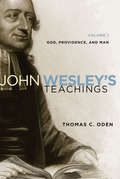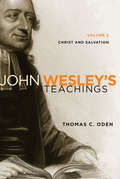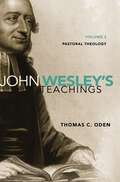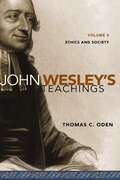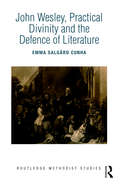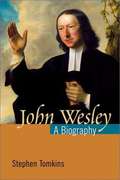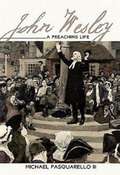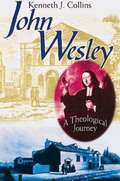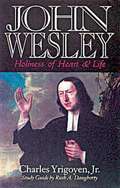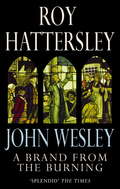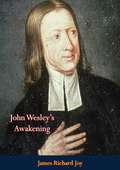- Table View
- List View
John Verse by Verse (Osborne New Testament Commentaries)
by Grant R. OsborneJohn is at once the most complex and the easiest to understand of all the Gospels. If we want a young seeker or new believer to read something that is both clear and filled with the gospel and good basic theology, we give them the Gospel of John. And if we want to study an incredibly deep theological masterpiece that stretches the brightest mind, we open the Gospel of John. It is the most evangelistic account of Jesus' life and ministry, and it also gives the mature Christian deep theological truths to chew on. In John Verse by Verse, respected New Testament scholar Grant R. Osborne invites the reader to become caught up in the dramatic masterpiece of the Fourth Gospel. He writes, "If I were teaching a course in college or seminary on creative writing, John's Gospel would be set alongside Shakespeare as models of brilliant characterization and plot." It is perhaps Osborne's favorite book of the Bible, and enthusiasm for it shines on every page. The Osborne New Testament Commentaries, by respected professor and author Grant R. Osborne, are for people seeking a straightforward explanation of the text in its context, avoiding either oversimplification or technical complexity. Osborne brings out the riches of the New Testament, making each book accessible for pastors and all who consider themselves students of Scripture.
John Volumes 1 & 2 MacArthur New Testament Commentary Set (MacArthur New Testament Commentary Series)
by John MacArthurThis package includes the complete two-volume set of the Gospel of John from the MacArthur New Testament Commentary series: John 1-11 and John 12-21. The MacArthur New Testament Commentary series continues to be one of today's top-selling commentary series. In the volume one and two of the Gospel of John, MacArthur gives verse-by-verse analysis in context and provides points of application for passages, illuminating the biblical text in practical and relevant ways. The series has been praised for its accessibility to lay leaders, and is a must-have for every pastor's library.
John Volumes 1 & 2 MacArthur New Testament Commentary Set (MacArthur New Testament Commentary Series)
by John MacArthurThis package includes the complete two-volume set of the Gospel of John from the MacArthur New Testament Commentary series: John 1-11 and John 12-21. The MacArthur New Testament Commentary series continues to be one of today's top-selling commentary series. In the volume one and two of the Gospel of John, MacArthur gives verse-by-verse analysis in context and provides points of application for passages, illuminating the biblical text in practical and relevant ways. The series has been praised for its accessibility to lay leaders, and is a must-have for every pastor's library.
John Wesley and the Education of Children: Gender, Class and Piety (Routledge Methodist Studies Series)
by Linda A. RyanScholars have historically associated John Wesley’s educational endeavours with the boarding school he established at Kingswood, near Bristol, in 1746. However, his educational endeavours extended well beyond that single institution, even to non-Methodist educational programmes. This book sets out Wesley’s thinking and practice concerning child-rearing and education, particularly in relation to gender and class, in its broader eighteenth-century social and cultural context. Drawing on writings from Churchmen, Dissenters, economists, philosophers and reformers as well as educationalists, this study demonstrates that the political, religious and ideological backdrop to Wesley’s work was neither static nor consistent. It also highlights Wesley’s eighteenth-century fellow Evangelicals including Lady Huntingdon, John Fletcher, Hannah More and Robert Raikes to demonstrate whether Wesley’s thinking and practice around schooling was in any way unique. This study sheds light on how Wesley’s attitudes to education were influencing and influenced by the society in which he lived and worked. As such, it will be of great interest to academics with an interest in Methodism, education and eighteenth-century attitudes towards gender and class.
John Wesley and the Origins of Methodist Missions
by Philip Wingeier-RayoLearn how Methodism became a worldwide mission.It is broadly understood that John Wesley was the founder of the Methodist movement that spread around the world in the eighteenth century. He is known for being a missionary in Georgia, his “heart-warming” experience at Aldersgate, field preaching, and the famous quote “the world is my parish.” It is also assumed that Wesley was a proponent of world missions and helped spread the Methodist movement around the world. This study examines this assumption and, after a closer look, reveals John Wesley’s reluctance to send missionaries overseas. The book uncovers several examples of Wesley’s rejection of world missions and occasions when he thwarted plans. Wesley undermined the efforts of Thomas Coke, the Father of Methodist Missions, who wrote an appeal to send missionaries abroad. John Wesley and the Origins of Methodist Missions reveals that it was unheralded lay people, ordinary immigrants, merchants, planters, soldiers, enslaved persons, and former slaves, who carried Methodism with them to such far-off places at Antigua, Maryland, New York, Gibraltar, Nova Scotia, and Sierra Leone. Persons such as Nathaniel Gilbert, Sophia Campbell, Mary Alley, and Bessie started a multiracial Methodist Society in Antigua—the first outside of Europe. These lay people, and several others, were not officially commissioned or authorized by Wesley to plant Methodist societies. Rather they traveled on their own, motivated by the love of God and neighbor, to share their faith with others. It was only after these Methodist societies were established, and after multiple appeals, that John Wesley and the British Conference conceded to send missionaries to assist. John Wesley was not anti-mission. He was very missional in his context in England and his message of God’s grace was at the heart of the Methodist movement. Yet he was cautious and reluctant to send missionaries overseas. This book offers some reasons for his hesitancy and highlights the stories, challenges, and successes of these pioneer men and women who spread Methodism around the world.Foreword by Natalya Cherry.
John Wesley in America: Restoring Primitive Christianity
by Geordan HammondWhy did John Wesley leave the halls of academia at Oxford to become a Church of England missionary in the newly established colony of Georgia? Was his ministry in America a success or failure? These questions--which have engaged numerous biographers of Wesley--have often been approached from the vantage point of later developments in Methodism. Geordan Hammond presents the first book-length study of Wesley's experience in America, providing an innovative contribution to debates about the significance of a formative period of Wesley's life. John Wesley in America addresses Wesley's Georgia mission in fresh perspective by interpreting it in its immediate context. In order to re-evaluate this period of Wesley's life, Hammond carefully considers Wesley's writings and those of his contemporaries. A laboratory for implementing his views of primitive Christianity, the mission served to restore the doctrine, discipline, and practice of the early church in the pristine Georgia wilderness. Understanding the centrality of primitive Christianity to Wesley's thinking and pastoral methods is essential to comprehending his experience in America. Wesley's conception of primitive Christianity was rooted in his embrace of patristic scholarship at Oxford. The most direct influence, however, was the High Church ecclesiology of the Usager Nonjurors who inspired him with their commitment to the restoration of the primitive church.
John Wesley on Christian Beliefs: The Standard Sermons In Modern English Volume 1
by John Wesley Kenneth Cain KinghornHow many times have you heard people say "everyone should read Wesley" or maybe you've thought about reading the Standard Sermons but couldn't get past the original language? This volume contains the first twenty sermons, in which Wesley deals with theology, in modern English, making this volume appropriate for individual and small group study. Lay speakers, local pastors, and small group members will enjoy this book.
John Wesley on Christian Practice: The Standard Sermons in Modern English Volume 3
by John Wesley Kenneth Cain KinghornThis is the third volume of the Standard Sermons of John Wesley, transcribed into today's English. These volumes accurately transcribe their eighteenth-century language into a form suitable for today's reader. This volume contains the last twenty sermons, in which Wesley deals with questions and concerns facing the Methodist movement in its early days: the balance of faith and works; the charge that the Methodists were enthusiasts; tolerance (catholic spirit) among believers; Christian perfection; new birth; and others.
John Wesley on The Sermon on the Mount: The Standard Sermons in Modern English Volume 2
by John Wesley Kenneth Cain KinghornHave you ever tried to read the original sermons? This volume contains the sermons Wesley preached on the Sermon on the Mount in language for today's readers.
John Wesley's Conception and Use of Scripture (Kingswood Series)
by Scott J. JonesDespite wide acceptance of the "Wesleyan quadrilateral", significant disagreements have arisen in both academic and church circles about the degree to which Scripture stood in a place of theological primacy for Wesley, or should do so for modern Methodists, and about the proper and appropriate methods of interpreting Scripture. In this important work, Scott J. Jones offers a full-scale investigation of John Wesley's conception and use of Scripture. The results of this careful and thorough investigation are sometimes surprising. Jones argues that for Wesley, religious authority is constituted not by a "quadrilateral", but by a fivefold but unitary locus comprising Scripture, reason, Christian antiquity, the Church of England, and experience. He shows that in actual practice Wesley's reliance on the entire Christian tradition - in particular of the early church and of the Church of England - is far heavier than his stated conception of Scripture would seem to allow, and that Wesley stresses the interdependence of the five dimensions of religious authority for Christian faith and practice.
John Wesley's Doctrine of Justification
by Mark. K. OlsonJohn Wesley’s Doctrine of Justification provides updated scholarship on this pivotal doctrine of Methodism, providing a deeper understanding of a major tenet of the Christian faith. Mark Olson offers a comprehensive treatment of the development and exposition of Wesley’s doctrine of justification and how it changed throughout Wesley’s life, including his early views rooted in Anglican heritage, the significant developments in Wesley’s career, and contributions from notable figures like John Fletcher to his doctrine of general justification.The doctrine of justification was pivotal to John Wesley’s understanding of a person’s relationship with God. In Wesley’s view, it defined one of the two general parts of salvation. It touched every aspect of the spiritual journey from birth (general justification) to conversion (present justification) to final judgment and glory (final justification). To properly understand Wesley’s via salutis and theology, one needs to grasp the particulars of his doctrine of justification. The best way to do this is to tell the story of how he came to understand the doctrine over the course of his life. It is a complex story, with many twists and turns, that deserves to be fully told.
John Wesley's Pneumatology: Perceptible Inspiration (Routledge Methodist Studies Series)
by Joseph W. CunninghamPerceptible inspiration, a term used by John Wesley to describe the complicated relationship between Holy Spirit, religious knowledge, and the nature of spiritual being, is not unlike the term 'Methodist' which was also coined by critics of Methodism during the eighteenth century in Britain. John Wesley's adversaries, especially the pseudonymous John Smith with whom Wesley exchanged letters for a period of three years, frequently challenged the plausibility of direct spiritual sensation, which Wesley defended. What does Wesley mean by perceptible inspiration? What does the teaching reveal about the nature and existence of God in Wesley's thinking? What does it suggest about the spiritual nature of humankind? In John Wesley's Pneumatology, it is argued that 'perceptible inspiration' more than a sidebar of Methodist thought, offers a useful model for considering the various features of Wesley's views on the work of the Spirit in relation to human existence, participatory religious knowledge, and moral theology.
John Wesley's Political World (Routledge Methodist Studies Series)
by Glen O’BrienThis book employs a global history approach to John Wesley’s (1703–1791) political and social tracts. It stresses the personal element in Wesley’s political thought, focusing on the twin themes of ‘liberty and loyalty’. Wesley’s political writings reflect on the impact of global conflicts on Britain and provide insight into the political responses of the broader religious world of the eighteenth century. They cover such topics as the nature and origin of political power, economy, taxes, trade, opposition to slavery and to smuggling, British rule in Ireland, relaxation of anti-Catholic Acts, and the American Revolution. Glen O’Brien argues that Wesley’s political foundations were less theological than they were social and personal. Political engagement was exercised as part of a social contract held together by a compact of trust. The book contributes to eighteenth-century religious history, and to Wesley Studies in particular, through a fresh engagement with primary sources and recent secondary literature in order to place Wesley’s writings in their global political context.
John Wesley's Sermons: An Anthology
by Albert C. OutlerAdapted from Albert Outler's 4-volume text The Works of John Wesley, this anthology of 50 of Wesley's finest sermons. Arranged chronologically with introductory commentary by Richard Heitzenrater.
John Wesley's Teachings, Volume 1
by Thomas C. OdenThe first presentation of John Wesley's doctrinal teachings in a systematic form that is also faithful to Wesley's own writings in ebook format. Wesley was a prolific writer and commentator on Scripture, yet it is commonly held that he was not systematic or internally consistent in his theology and doctrinal teachings. On the contrary, Thomas C. Oden intends to demonstrate here that Wesley displayed a remarkable degree of consistency over sixty years of preaching and ministry. The book helps readers to grasp Wesley's essential teachings in an accessible form so that the person desiring to go directly to Wesley's own writings (which fill eighteen volumes) will know exactly where to turn. This volume focuses on Wesley's doctrinal teaching. Other volumes in this series deal with his ethical and pastoral care teachings.
John Wesley's Teachings, Volume 2: Christ and Salvation
by Thomas C. OdenThe first presentation of John Wesley's doctrinal teachings in a systematic form that is also faithful to Wesley's own writings in ebook format. Wesley was a prolific writer and commentator on Scripture, yet it is commonly held that he was not systematic or internally consistent in his theology and doctrinal teachings. On the contrary, Thomas C. Oden intends to demonstrate here that Wesley displayed a remarkable degree of consistency over sixty years of preaching and ministry. The book helps readers to grasp Wesley's essential teachings in an accessible form so that the person desiring to go directly to Wesley's own writings (which fill eighteen volumes) will know exactly where to turn.
John Wesley's Teachings, Volume 3: Pastoral Theology
by Thomas C. OdenJohn Wesley’s Teachings is the first systematic exposition of John Wesley's theology that is also faithful to Wesley's own writings. Wesley was a prolific writer and commentator on Scripture—his collected works fill eighteen volumes—and yet it is commonly held that he was not systematic or consistent in his theology and teachings. On the contrary, Thomas C. Oden demonstrates that Wesley displayed a remarkable degree of internal consistency over sixty years of preaching and ministry. This series of 4 volumes is a text-by-text guide to John Wesley’s teaching. It introduces Wesley’s thought on the basic tenets of Christian teaching: God, providence, and man (volume 1), Christ and salvation (volume 2), the practice of pastoral care (volume 3), and issues of ethics and society (volume 4). In everyday modern English, Oden clarifies Wesley’s explicit intent and communicates his meaning clearly to a contemporary audience. Both lay and professional readers will find this series useful for devotional reading, moral reflection, sermon preparation, and for referencing Wesley’s opinions on a broad range of pressing issues of contemporary society.
John Wesley's Teachings, Volume 4: Ethics and Society
by Thomas C. OdenTimeless Teachings of John Wesleyfor the Modern-Day Christian John Wesley’s Teachings is the first systematic exposition of John Wesley's theology that encompasses all of his writings. Wesley was a prolific writer and commentator on Scripture—his collected works fill twenty-four volumes—and yet it is commonly held that he was not systematic or consistent in his theology and teachings. On the contrary, Thomas C. Oden demonstrates that Wesley displayed a remarkable degree of internal consistency over sixty years of preaching and ministry. This series of four volumes is a text-by-text guide to John Wesley’s teaching. It introduces Wesley’s thought on the basic tenets of Christian teaching: God and providence (volume 1), Christ and salvation (volume 2), the practice of pastoral care (volume 3), and issues of ethics and society (volume 4). In everyday modern English, Oden clarifies Wesley’s explicit intent and communicates his meaning clearly to a contemporary audience. Both lay and professional readers will find this series useful for devotional reading, moral reflection, sermon preparation, and for referencing Wesley’s opinions on ecological recovery, moral relativism, enthusiasm, catholicity, experience, paradise, final justification, providence, and countless others.
John Wesley, Practical Divinity and the Defence of Literature (Routledge Methodist Studies Series)
by Emma Salgård CunhaJohn Wesley (1703–1791), leader of British Methodism, was one of the most prolific literary figures of the eighteenth century, responsible for creating and disseminating a massive corpus of religious literature and for instigating a sophisticated programme of reading, writing and publishing within his Methodist Societies. <P><P>John Wesley, Practical Divinity and the Defence of Literature takes the influential genre of practical divinity as a framework for understanding Wesley’s role as an author, editor and critic of popular religious writing. It asks why he advocated the literary arts as a valid aspect of his evangelical theology, and how his Christian poetics impacted upon the religious experience of his followers.
John Wesley: A Biography
by Stephen TomkinsThe life and work of John Wesley (1703-1791) have had an enormous influence on modern Christianity, including his role as founding father of the Methodists, now 33 million strong worldwide. In this lively new biography journalist Stephen Tomkins narrates the story of Wesley's colorful and dramatic life for a new generation. Writing with verve and a light, sure touch, Tomkins follows Wesley from his childhood at Epworth rectory through his schooling and university career at Oxford to his mission to Georgia, his conversion in 1738, and finally his life as a religious leader in England. Preaching in numerous villages, towns, and cities, Wesley and his followers faced intense and savage persecution, but their missions were also accompanied by extraordinary phenomena such as convulsions, laughter, and healings. In the course of his compelling narrative Tomkins examines Wesley's relationships with key people in his life, including his powerful and austere mother, Susanna, and his hymn-writing brother, Charles. Tomkins also explores key issues in Wesley's life, such as his renunciation of wealth and his attitude toward women, concluding with an assessment of Wesley's ongoing influence both in his own country and abroad. Superbly crafted, grounded in thorough research, and published in the 300th year of Wesley's birth, this book will appeal to students of Wesley, people from the Methodist tradition, and general readers interested in church history.
John Wesley: A Preaching Life
by Michael Pasquarello IIIThat John Wesley was not a systematic theologian is a point frequently made. Yet if that be the case, what kind of theologian was he? To look at his literary output over the course of his long life and ministry is to recognize the central role that sermons played. Thus, claims Michael Paquarello, Wesley was a homiletical theologian, one for whom the Word preached was the core means of reflecting on and understanding the meaning of the Gospel.In this "preaching life" of Wesley Pasquarello places Wesley's sermons in the larger religious, political, and intellectual world of their eighteenth-century context. Neither a biography nor an intellectual history, it is a homiletic history, one that both uses the details of Wesley's milieu to build a framework for understanding his sermons, and that illumines the practical wisdom embodied in the content, form, and style of Wesley's preaching. John Wesley: A Preaching Life vividly portrays the centrality of Wesley's preaching to the religious revival that transformed eighteenth-century England.
John Wesley: A Theological Journey (The\works Of John Wesley Ser.)
by Kenneth J. CollinsJohn Wesley: A Theological Journey has been nominated for a Wesleyan Theological Society Book Award. Abingdon Press would like to congratulate Kenneth Collins on this honor. John Wesley remains a seminal figure, not only for "the people called Methodist, " but also within the larger Protestant tradition. Understanding his theology is a requirement for understanding the development of the Western Christian tradition in the modern period. In recent years much work has been done to grasp the intricacies of Wesley's theology. However, most of this work has been thematic in organization, studying Wesley's thought according to a topical or systematic outline. The weakness of this approach, argues Kenneth J. Collins, is that it fails to demonstrate the evolution and changes of Wesley's theology. What is called for is a historical presentation--one that examines the development of Wesley's theology across the span of his long and eventful theological career. Collins thus provides a chronological presentation of the development of Wesley's theology. Drawing on an extensive examination of the primary sources, and demonstrating an intimate knowledge of the different contexts and social locations in which Wesley's theology took place, John Wesley: A Theological Journey will be necessary reading for anyone wishing to understand the broad scope of the Methodist leader's theological development and contribution.
John Wesley: Holiness of Heart and Life
by Charles YrigoyenJohn Wesley: Holiness of Heart and Life is a six-week study on John Wesley, the major themes of his theology, the spread of Wesleyanism to North America, and renewal in the Wesleyan tradition. Chapters include reflection questions. The Study Guide offers step-by-step plans for each session.
John Wesley: The Life of John Wesley
by Roy HattersleyJohn Wesley led the Second English Reformation. His Methodist 'Connexion' was divided from the Church of England, not by dogma and doctrine but by the new relationship which it created between clergy and people. Throughout a life tortured by doubt about true faith and tormented by a series of bizarre relationships with women, Wesley kept his promise to 'live and die an ordained priest of the Established Church'. However by the end of the long pilgrimage - from the Oxford Holy Club through colonial Georgia to every market place in England - he knew that separation was inevitable. But he could not have realised that his influence on the new industrial working class would play a major part in shaping society during the century of Britain's greatest power and influence and that Methodism would become a worldwide religion and the inspiration of 20th century television evangelism.
John Wesley’s Awakening
by James Richard JoyJohn Wesley (1703-1791) was an English cleric, theologian and evangelist who was a leader of a revival movement within the Church of England known as Methodism. The societies he founded became the dominant form of the independent Methodist movement that continues to this day.“The old-time, narrow, sectarian view of Wesley as the Founder of Methodism, and therefore the patron-saint and peculiar property of one denomination, dispraised and undervalued by all others, has largely given way to the world-view which ranks him with the major prophets, apostles, and saints of all time. His tablet is in Westminster Abbey, with the memorials of monarchs, statesmen, empire-builders, philanthropists, and men of letters. The scholars of two continents have begun to recognize him as belonging in the grand succession of Saint Paul, Saint Augustine, Martin Luther, and John Wesley—the great awakeners of the human soul—themselves awakened by the touch of God.“This book owes its existence to a call for something which should present in brief compass and in non-theological language the personality and work of John Wesley, with special reference to the spiritual experience at Aldersgate, which marked the turning-point in his career.”
